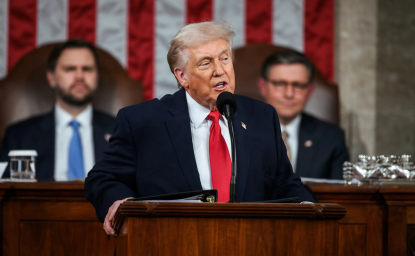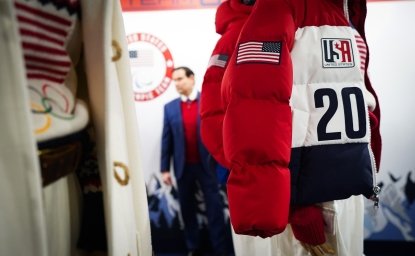 In his more than 900 radio interviews, George Liston Seay has interviewed presidents, diplomats, historians, dissidents, professors, biographers, poets...all of them with at least one thing in common. While some may be higher profile and others lesser known, they all have a fascinating story to tell, and Seay masterfully draws it from them. In plain talk, accessible to just about anyone, Seay prompts his guests to share their rich experiences and insights.
In his more than 900 radio interviews, George Liston Seay has interviewed presidents, diplomats, historians, dissidents, professors, biographers, poets...all of them with at least one thing in common. While some may be higher profile and others lesser known, they all have a fascinating story to tell, and Seay masterfully draws it from them. In plain talk, accessible to just about anyone, Seay prompts his guests to share their rich experiences and insights.
"At dialogue, we seek to humanize the role of the intellectual," Seay told Centerpoint. "This work is good and useful, and we want to make it relevant to everyone."
For 20 years, dialogue has been the broadcast arm of the Wilson Center. The award-winning weekly radio program features half-hour conversations with renowned public figures, scholars, and writers. Listeners can tune in on stations around the country, even internationally, or listen via the Center's website to informed discussions on national and international affairs, history, and culture. And, for the past six years, dialogue has collaborated with Northern Virginia Public Television and MHz Networks on a television series with much the same format.
Seay founded dialogue in 1988 and proudly admits that, in 20 years, he has never missed an interview. The producer and host, Seay says he is no expert or scholar, though he certainly has become one over the years from a plethora of research and interviews.
"There would be no dialogue without the Wilson Center," he said, "and the work here is done in the spirit of the Center, which also seeks to humanize the policy world and relate policy issues to the general public."
 Now, some past highlights of dialogue are available in yet another medium, the newly released book, The Art of Conversation, which features 24 interviews in an immensely readable collection. Published by Woodrow Wilson Center Press, the book was the brainchild of Joe Brinley, the Press's director, and edited by former editorial assistant Peter Bean, who currently is in law school.
Now, some past highlights of dialogue are available in yet another medium, the newly released book, The Art of Conversation, which features 24 interviews in an immensely readable collection. Published by Woodrow Wilson Center Press, the book was the brainchild of Joe Brinley, the Press's director, and edited by former editorial assistant Peter Bean, who currently is in law school.
"Joe Brinley is the unsung hero of this book," Seay said. "He wanted this collection and then committed himself to it. When Joe brought me the [finished product], I was incapable of an objective thought on it. This book is a product of the last 20 years of my life…It was an extremely personal moment."
A Guest Book
The Art of Conversation is brimming with life lessons; each short chapter has a volume of experience in it. The guests interviewed offer insights into culture, history, and the world and discuss topical, often emotional issues. Some are warriors for a cause: feminism, human rights, political change; others have battled racism, war, and other evils.
Saad Eddin Ibrahim, an Egyptian dissident intellectual, advocated political reform across his region to safeguard against human rights abuses. The Wilson Center's Haleh Esfandiari and scholars Lilia Labidi and Nayereh Tohidi discussed the place of women in Islamic societies.
Mexican Journalist Alma Guillermoprieto said intellectuals in Latin America are respected for their role in questioning authority and speaking out against injustice. Former Mozambique President Joaquim Chissano urged forgiveness and tolerance in forging a "culture of peace."
Wilson Center President and Director Lee H. Hamilton, who served as an Indiana congressman for 34 years, suggested establishing a senior, bipartisan congressional committee that would consult regularly with the executive branch on foreign policy issues to help build broad consensus.
Benjamin O. Davis, Jr., leader of World War II's Tuskegee Airmen and the Air Force's first African- American general, who died in 2002, had candidly described his squadron's experience. "We put up with all sorts of foolishness and denigration in order to fly airplanes and demonstrate that, yes, black people could fly airplanes," he said. Awed by this interview, Seay said, "I literally had goose bumps. It was a spiritual honor to be in this man's presence."
In some cases, guests became humbled by their own reflections. Seay said Robert S. McNamara, defense secretary under presidents Kennedy and Johnson, "critically reevaluated his career…he was in tears as the conversation ended." McNamara espoused the futility of war and the importance of empathy. "We're not always right," he said. "If we can't persuade other [similar] nations…to share in the financial costs and the blood costs, then we ought to reconsider our approach."
Roméo Dallaire, the commander of the ill-fated UN peacekeeping mission in Rwanda during the 1994 genocide, said, "I believe that shedding blood of our own is crucial to the advancement of humanity and [to] the respect for humanity because it's simply not enough to respond to something because we want the oil or strategic location."
Another man humbled by the implications of his decisions was the diplomat George Kennan, who authored policy in dealing with the Soviet Union. He admitted, "I made the great mistake of not realizing that people would not understand there could be containment that was not of a military nature" such as diplomacy on an intellectual level.
Seay said the guests featured in this book exhibited a passion for ideas and people, and a reverence for history and language. Some even found humor in the way they viewed themselves and the world, and all of them were modest about their achievements. He admitted it was difficult to choose 24 guests out of the hundreds of interviews over the years. "We could've made a celebrity list," he said, "but we wanted a cross-section of people." Seay's philosophy always has been, "You can find meaningful conversations all around you."
The Art of Conversation
"There is an art of conversation," said Seay, explaining how the book's title transpired. "Everyone has a mind and a voice and everyone can be an artist." He considers listening to be the critical component. When conducting interviews, he said, "It's demanding and you must pay attention and listen analytically, respectfully, empathetically to project into another's reality."
The interview process requires great sensitivity. Dialogue, he continued, "is the cultivation of the human voice. Listen to yourself; think before you speak, and slow down for two reasons: so you have the chance to think about what you'll say and to bring your voice into its natural range. Then, you're the immediate beneficiary."
In preparing for each interview, Seay reads the guest's book and any other pertinent background material. He then loosely drafts a script as a guide. He said, "Once the conversation begins, though, I must react to what's been said" and it progresses from there. "I'm extremely thoughtful regarding what I do. My mind is engaged in every subject I [work on]. I believe in it and I can defend it."
Seay's own travel and experiences contribute to the thoughtfulness of questions and richness of the conversations. He said, "Even when my experience doesn't come into the conversation, each of us becomes our own reference book. We're going into the past and relating it to something happening now."
The Producer
"I have as great a need for conversation as, perhaps a greater need than, my guests," Seay modestly admits. "This is a personal reward. There's no greater sense of self-expression."
Seay is a quiet, reflective man who usually is the one asking the questions. But, getting to know him, one is struck by his many interests and hobbies. He's a pilot, a sailor, an equestrian. Before coming to the Wilson Center 32 years ago, he lived in South America for 10 years, the first seven in Brazil volunteering in the Peace Corps and the latter three in the Foreign Service, followed by three years in Mexico working for the Ford Foundation. And, naturally, Seay loves to read. In fact, several years ago, he had to add an extension to his home to fit all of his books.
Seay truly loves his work and his guests sense his enthusiasm. After all, it takes a certain passion to get his guests to be so candid. "dialogue has been my life," Seay said. "I replay conversations and experiences to myself and it reinforces that fact in my mind."
The dialogue staff has worked to increase the shelf life of Seay's work. "Broadcasts are ephemeral," said Seay. "They happen and they're gone. My goal is permanence." Archived broadcasts on the web and this book help achieve just that.
You can order The Art of Conversation online or by contacting the co-publisher, Johns Hopkins University Press, at (800) 537-5487.
Written by Dana Steinberg
Related Links



